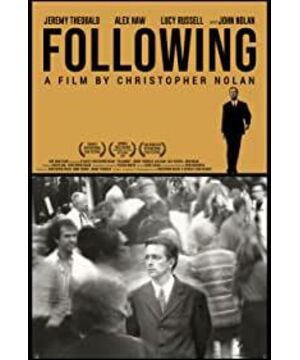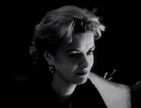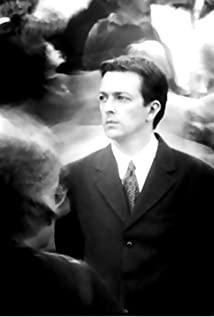British director, screenwriter and producer Christopher Nolan's debut film received attention as soon as it was released at the San Francisco Film Festival. Nolan has directed many well-known films "Deadly Magic", "Inception", "The Dark Knight", "Interstellar", "Dunkirk", and is well-deserved as the world's top suspense film director. In this film, with only 6,000 US dollars, hundreds of thousands of finished films were shot, showing the potential and talent of a top director.
"Following" can be regarded as the predecessor of "Memento". The director deliberately disrupted the chronological order of the narrative, advancing the future clips, and cross-narrating the current clips. The audience will have a strong sense of confusion when watching along the timeline. What are they talking about? For example, I'm blind, and I didn't know the difference between the male lead and the second male lead. After seeing it, I found out that the director had deliberately arranged two people who looked similar.
Re-organize the timeline, and divide it into three lines according to the male protagonist Bill's shape.
From the beginning to the end, starting from the appearance of Cobb, arranged in order of the story,
A past line: Bill is a little downcast; 1⃣️4⃣️7⃣️8⃣️11, 12,
A present line: Bill is exquisitely dressed up with the blonde woman; 2⃣️5⃣️9⃣️13,
A FUTURE LINE: Bill has a wound on his face. 3⃣️6⃣️?
Then merge into a line.
At the beginning of the film, a flashback narration is introduced. The point of view of this narration interprets and tracks the incident from another perspective, which makes people feel very interesting. Almost all the main scenes of the characters appearing in the film are presented through dialogue. It begins with a conversation in which Bill is being interrogated by a police officer. The accompanying picture is Bill's daily life at the beginning, and Bill tracking different people.
Bill: Here's my interpretation, or statement of fact. I lived alone for quite a while and felt increasingly lonely and bored. Day and night, doing nothing. So I started following.
Officer: Follow?
Bill: Stalking is stalking, and I started stalking people.
Officer: Who is following?
Bill: It was random at first. To follow, you have to find passers-by, anyone, a complete stranger.
Officer: Then what?
Bill: Then do nothing.
Officer: Do nothing?
Bill: Do nothing but see where they go. what did you do. Then go home.
Officer: Why did you do this?
Bill: Look where they went. Whoever it is, it's...how to put it, have you ever gone to the stadium to watch the game, but not the game, just glanced aimlessly at the audience. Then someone will grab your attention. Suddenly, he ceased to belong to the crowd and became a unique individual, that moment. I can't resist this feeling.
Back in real time, Bill answers the police officer's question, but at this point the audience doesn't know the man is the police officer. The director is very good at using such suspense, not giving the audience an omniscient perspective, and letting the audience know less than the characters to create a sense of suspense and curiosity.
Officer: So you're stalking women?
Bill: No, I don't stalk women on purpose. This has nothing to do with desire, I will follow anyone. I just want to know where they went and what they did.
Officer: Are you playing the spy game?
Bill: No, I'm a writer, at least I want to be a writer. I'm gathering material for character building. At least initially. After a while, I realized the risk. I'm addicted, and I have to make rules to restrain myself. Control this hobby. For example, you cannot follow the same person for a long time. No rules like stalking women in an alley in the middle of the night. The target to be tracked should be completely arbitrary. And when this one is broken, things start to go wrong. The trouble came when I started following some people intentionally, when I started picking specific targets.
The picture cuts to a third line, and Bill is looking at the picture of the blonde woman. Bill starts stalking the blonde woman.
Bill: Have you ever been on the bus or in the subway, paying attention to other people's conversations? Or think someone on the street looks interesting. Or behaving oddly or something, you just want to know how they live and work. Where are you from, where are you going.
Because now I am studying screenwriting, the description of this experience is very similar to the daily life and inner monologue of a screenwriter. In order to better describe human nature, I began to pay attention to everyone around me.
Bill: When you start looking at a person's behavior, a lot of questions go through your head. I want to ask these questions, and I want to know the answers. So I followed them, looking for answers. The most important rule is that even if you know exactly where a person lives and works, you can't follow the same person again. This is the most important rule, and the one I broke first.
In this wonderful narration, the three-line Bill shape is interspersed, as if the wonderful story will officially begin after the preview.
The story officially begins, Bill stalks a man named Cobb and breaks his own rules. After following Cobb many times, the two "meeted" for the first time. Cobb's appearance was impressive. One day Bill followed to the restaurant, and Cobb sat down directly in front of Bill.
Cobb: Is there anyone here? (Foreshadowing of a psychological warfare)
Bill: No.
Cobb: Who am I? (Being straight to the point and asking the opposite side directly also gave the audience a sense of shock.)
At this time, the director arranged for a waiter to come and ask Cobb, which not only conformed to the reality, but also temporarily slowed down the narrative rhythm. Give the audience and Bill a little cushion.
Cobb: A cup of black coffee, and…
Bill: No.
Cobb: And another cup of black coffee. You're obviously not a police officer, so who are you? Why are you following me?
Bill: Sorry, I don't know what you're talking about. (clumsy denial)
Cobb: Don't play stupid to me, who are you?
At this time, the director arranged for the waiter to come and deliver coffee. Continue to delay to satisfy the curiosity of the audience. It also reflects the character of the two. Apparently Bill couldn't beat Cobb. Bill succumbed to the ping-pong sound of Cobb's deliberately stirring coffee.
Cobb: Thank you very much. Want candy?
Bill: I'm not...I'm not following you, I...I saw your bag and thought you were interesting. (Bad excuse 1)
Cobb: Are you gay? (counterattack + unbelief)
Bill: No! no. I actually see you as a former classmate. (Poor excuse 2, since the person who chooses to use such an obvious lie, will definitely not tell the real reason so easily) I saw you walk in, so I followed up to see if it was him. But I read it wrong...
Cobb: Why didn't you ask when you first saw it? (continue to fight back + unbelief)
Bill: Because it would be embarrassing to see it wrong.
Cobb: It can't be more embarrassing than it is now.
Bill: Probably.
Cobb: What's your name? (change strategy)
Bill: Bill.
Cobb: Bill, what do you do?
Bill: Actually I...
Cobb: Still looking for a job, right? (attack)
Bill: Yes, it is. (At this time, Bill didn't know what the other party sold in the gourd, or it was a defensive dialogue)
Cobb: So what do you want to do?
Bill: I don't know.
Cobb: Come on Bill, don't be so shy. You are a little ambitious, aren't you? (Using all sorts of rhetorical attacks to lure Bill into telling the truth.) Underappreciated artist, right?
Bill: No. (I don’t want to deny it for sure, because I’m right, but I don’t want the other party to know me better)
Cobb: Are you a painter?
Bill: No.
Cobb: Photographer?
Bill: No
Cobb: Writer?
Bill: Neither. (hesitate)
Cobb: It's a writer. (Cobb was already certain at this point)
Bill: No.
Cobb: But you write stuff.
Bill: Not much written. (Bill is about to be defeated)
Cobb: Write from time to time.
Bill: Yes, who doesn't write.
Cobb: I don't write. So you are a writer.
Bill: I didn't say that. (Bad denial 3) Why should I be considered a writer?
Cobb: A homeless man in his early twenties. (Cobb should be able to profile) They all fantasize about being a writer and can't wait to run into the future. (Cobb started lying too)
Bill: I'm not a writer.
Cobb: But you're interested in people. (throws bait)
Bill: Yes. (hooked)
Cobb: Interested in me. (continue to run out of bait)
Bill: Maybe. (Hooked again)
Cobb: You don't even ask my name. (Explaining that Bill lied and revealed the truth)
Bill: What's your name. (Knowing that I am revealing my secrets, I can no longer quibble)
Cobb: Don't ask me what's in my bag.
Bill: What bag? (Already panicked, and will soon be breached the psychological defense line)
Cobb: My bag. You stared at your bag all morning. (continue to chase)
Bill: What's your name? What's in the bag?
Cobb: My name is Cobb. See for yourself.
Cobb showed Bill the bag and let him see it for himself. This move is to gain his trust and goodwill. There are pirated CDs in it, and then Cobb reveals that he is actually a thief, and the two are half a pound, and no one is more noble than the other. Further gain Bill's trust. Only then did Bill join him in the burglary.
Afterwards, the sophisticated Bill accosted the blonde woman at the bar. In chronological order, here is the sudden encounter, and why will be explained later. But in the process of watching, because the dialogue between the two is very exciting, there are many layers of subtext implied, and they seem to be interested. Almost from the first second, the audience is attracted to continue watching, and it will not feel like dancing at all.
Bill: Please have a drink.
Woman: OK. But I'm not going to bed with you. (It was a blow to the head, blinding Bill and the audience. The director is very good at using this kind of surprise dialogue attack)
Bill: Why? (Bill's answer was also intriguing, leaving viewers wondering why his personality was completely different from before.)
Woman: Because I'm with that person. (Alluding to the gangster brother)
Bill: The bald one? (To ridicule a woman's bad taste, it's better to choose yourself)
Woman: You can buy me a drink. But he would never let me sleep with you. (implies that Bill himself is interested in him, but at his own risk, trying to lure Bill into making mistakes) Still want to ask?
Bill: No more. You are such a good girl...
Woman: How can you come to such a place, right?
Bill: How can you be with that old bald guy? (Continue to mock women's poor taste)
Woman: It's a long story, so keep your voice down. This is his territory.
Bill: I just wanted to get your attention. My name is Daniel Lloyd, and my friends call me Danny.
Woman: So what?
Bill: So obviously you're not having a good day today. It feels as if everyone is not getting along with you without medicine. (use soft)
Woman: Yes. It's been this way recently. (hinting to seduce Bill)
The blond woman finds the big gang staring at them.
Woman: Talk to me.
Bill: What?
The blonde slapped Bill. The gangster brother continued to bow his head and play cards with his friends.
Woman: See you outside in ten minutes.
Very naturally, the audience can think that the two must be together. At this time, the director has used two wonderful dialogues to shape the characters and relationships of important characters.
Next, start laying the suspense. Bill picked a family, and after the two broke in, Cobb was furious, saying that it was a homeless home and that the owner of the house would be back soon. It is recommended to go to the house of someone he likes. The next scene skips to the woman's house, where the woman and Bill complain about the theft in the house. It makes the audience wonder if the woman actually knew it was Bill. Gradually, the three lines came together, and the original complete picture of the incident: Cobb stole into the old lady's house not long ago and saw the body, which was suspected by the police as the murderer and brought for interrogation. So, Cobb and the blond woman seduce Bill, who looks similar to Cobb, to sin.
If the ending ends here, it may become a mediocre work without any faults. But the director and screenwriter continued to dig a layer of reversal that made people stunned. When Bill told the officer what happened, the officer said he had no news of the old woman's killing. Instead, they found the blond woman's body.
It turned out that Cobb was from the big brother of the gang. Because the blonde woman was too greedy, he was ordered by the big brother to kill the blonde woman, and seduced Bill to take the charge of killing the blonde woman. At this point, connect all the previous clues together. Bill couldn't prove the existence of Cobb at all, and he couldn't get rid of the relationship with the blonde woman.
The story ends here.
This is simply a stroke of genius. What Cobb said to Bill at the end was deeply entrenched in my mind, and I shuddered just thinking about it.
"Will others believe you because you are telling the truth?"
View more about Following reviews









